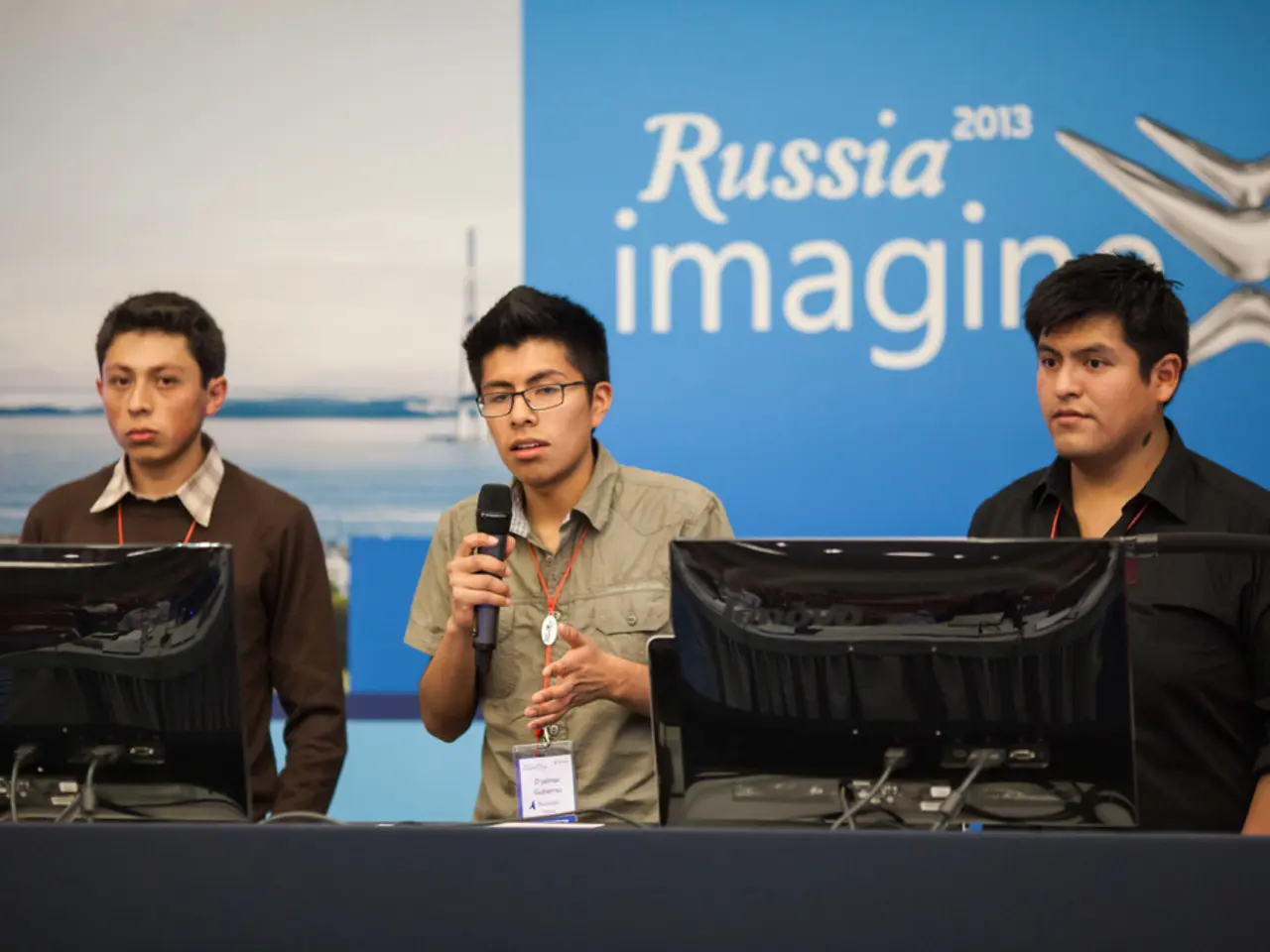Trump issues threat of severe repercussions to Putin
In the lead-up to the highly anticipated Trump-Putin summit in Alaska on August 15, 2025, tensions are running high as European leaders and Ukrainian President Volodymyr Zelensky emphasize the importance of Ukraine's territorial integrity.
The European-Ukrainian group, which includes key figures such as EU Commission President Ursula von der Leyen, EU Council President António Costa, NATO Secretary General Mark Rutte, French President Emmanuel Macron, British Prime Minister Keir Starmer, Italian Prime Minister Giorgia Meloni, Finnish President Alexander Stubb, Poland (represented by Head of State Karol Nawrocki and Prime Minister Donald Tusk), and others, have expressed concerns about being excluded from discussions that could impact Europe's security future and Ukraine's sovereignty.
Zelensky reiterated Ukraine's firm stance against ceding any controlled territory to Russia, stressing the need for a negotiated end to the conflict without territorial concessions. Putin, on the other hand, insisted that Ukraine must cede the entire Donbas region to Russia, complicating prospects for any agreement.
Key points discussed include Putin's demand that Ukraine relinquish Donbas region territory and keep NATO forces off Ukrainian soil. Zelenskyy, however, rejected territorial concessions and called for genuine security guarantees for Ukraine. The ambiguous nature of these security guarantees presents complexities, given Ukraine's non-NATO status and Russia's insistence that China and Russia be security guarantors, potentially giving Russia veto power over Ukraine's future choices.
Trump is expected to inform Zelensky of the meeting with Putin first, followed by the European core group, including Germany, on Friday night or Saturday morning. The US President has also hinted at possible reductions in U.S. military support if a deal is not reached.
European leaders remain wary of the direction suggested by the summit, perceiving risks to Ukraine and regional security from U.S. negotiating positions that sometimes align with Russian narratives. If there is no progress in Alaska, the USA and the Europeans must increase the pressure on Russia, according to Chancellor Friedrich Merz (CDU).
Merz also stressed that Ukraine must be at the table for any follow-up meetings. The EU Commission President, EU Council President, NATO Secretary General, and other leaders are part of the European-Ukrainian group that is advocating for a united front on this issue.
As the summit approaches, the stakes are high, and the future of Ukraine's territorial integrity and regional security hang in the balance. The contact line (the front line) must be the starting point for negotiations on territorial questions, with a ceasefire being the first essential step towards a resolution.
The negotiations must be part of a joint transatlantic strategy, with Europe, the USA, and NATO strengthening their common basis ahead of this critical meeting. The European-Ukrainian group is determined to stay closely united to react quickly and decisively to the outcome of the summit, ensuring that Ukraine's interests are protected and its territorial integrity preserved.
Read also:
- Massive 8.8 earthquake hits off the coast of Russia's Kamchatka Peninsula, prompting Japan to issue a tsunami alert.
- Court petitions to reverse established decision on same-sex marriage legalization
- Independence supporters in New Caledonia refuse agreement offering authority without a vote on sovereignty
- Proposed Standardization of Food Labeling Laws Among Member States by the Commission








